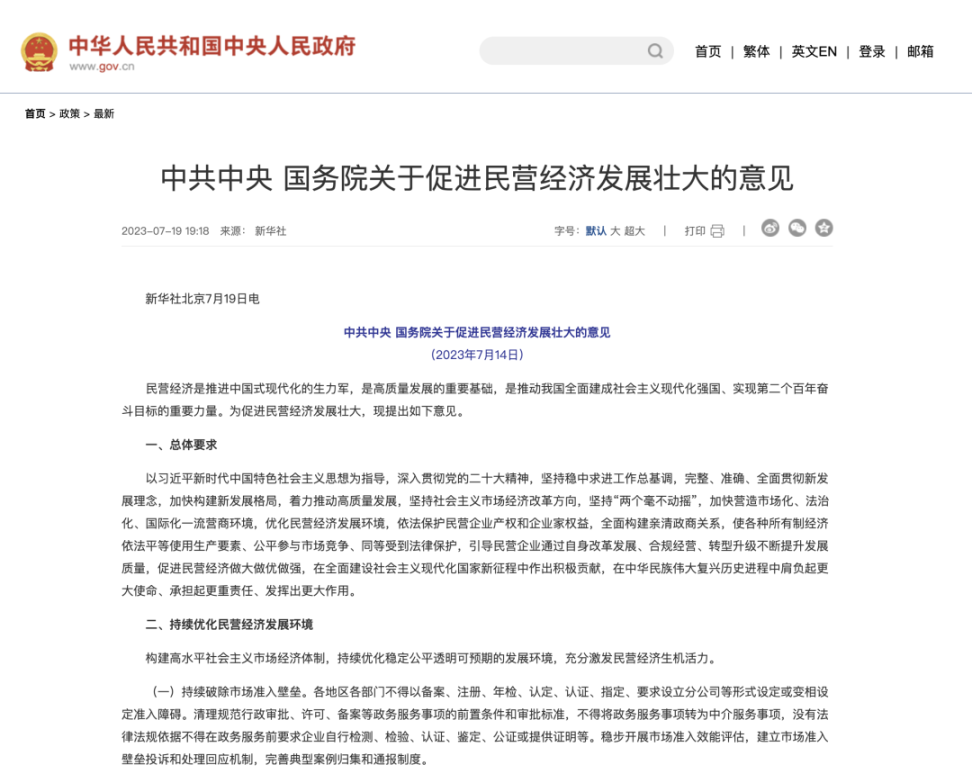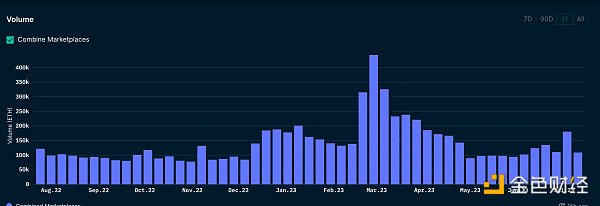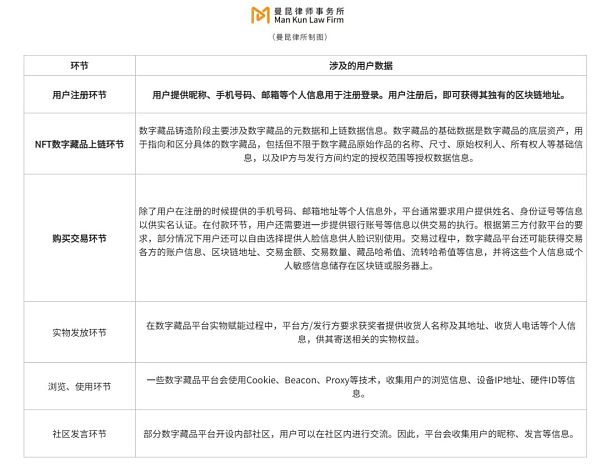Hainan issues a red-headed document to cut across to NFT digital collections.
Hainan issues a document to regulate NFT digital collections.Author: Liu Honglin
Recently, several NFT digital collectible entrepreneurs registered in Hainan have communicated with Lawyer Honglin. They mentioned that their companies are considering deregistration or moving to other cities.
The reason is a notice issued by the local Market Supervision Administration in Hainan, in conjunction with other departments. The content of the notice is very clear, requiring companies operating NFT digital collectible businesses in the jurisdiction to submit operating qualifications within a specified time frame, otherwise “the relevant responsibilities shall be borne by the company itself”.
- Viewpoint First Principles Thinking in the Blockchain Industry
- What is the finality of blockchain and why is it important?
- From the Internet to Blockchain Tracing the History of Trust and Verification
In theory, government regulation of industry development is a good thing, but things are obviously not that simple.
Lawyer Honglin browsed the full text of the notice and his overall impression was: the local government’s requirements for qualifications in the NFT digital collectible industry, which are claimed to be necessary for promoting the healthy development of the digital collectible industry, are actually an act of lazy governance by the local government.
It is time to bid farewell to the NFT digital collectible industry in Hainan (in a passive way).
According to the requirements of the local Market Supervision Administration, the qualifications required to operate NFT digital collectibles in Hainan are:
(1) Internet Information Service Operation Permit (ICP).
(2) Value-added Telecommunications Business License (EDI).
(3) Art Business Filing (Note: According to Article 5 of the “Measures for the Administration of Art Business”, operating units engaged in art business activities should apply for a business license from the industrial and commercial administrative department of the people’s government at or above the county level where they are located, and file with the cultural administrative department of the people’s government at or above the county level within 15 days from the date of obtaining the business license).
(4) Blockchain Filing.
(5) Network Culture Operation License.
(6) Network Publishing Service License.
(7) Auction License (Note: Article 11 of the “People’s Republic of China Auction Law”: Enterprises must obtain approval from the department responsible for auction business management of the local provincial, autonomous region, or directly-administered municipality government to engage in auction business. Auction enterprises can be established in prefecture-level cities).
(8) Second or third-grade security filing.
(9) Trading Market Opening Permit (Note: Article 2 of the “Interim Measures for the Management of Trading Venues in Hainan Province”: Trading venues referred to in these measures mean trading venues established within the administrative jurisdiction of our province and approved by the provincial government to engage in equity trading, bulk commodity trading, and other standardized contract trading, including trading venues that do not use the term “exchange” in their names, but do not include trading venues engaged in financial product trading under the daily supervision of the financial management department of the State Council).
As for which digital collectible companies need to obtain the above 9 qualifications, the local government adopts a one-size-fits-all approach.
The wording in the notice is, “If a company engages in the digital collectible business, especially if it opens a secondary market for trading, it should possess the above qualifications. If it engages in business without the above qualifications and is suspected of illegal and irregular behavior, the relevant industry regulatory authorities shall impose administrative penalties, and if it constitutes a crime, criminal responsibility shall be pursued according to law.”
This means that whether the industry practitioners understand the digital collectibles platform as only a primary market sales behavior, or open secondary functions to allow users to communicate about collectibles, they all need to obtain the above qualifications.
Are these local government compliance requirements really reasonable and legal? I don’t know how others see it, but at least my personal opinion is that the legality and reasonableness are both questionable.
We know that there are roughly two operating models for mainstream NFT digital collectibles in China. One is to only sell NFT digital collectibles and not support the circulation between users, such as Whale Detectives. Under this business model, the issuer treats the digital collectibles as virtual goods for sale. Regardless of the rights attached to the sold digital collectibles, they are legally typical commodities. It’s just that these commodities are digital goods in the digital age. In this scenario, the issuer earns sales fees, and the platform earns fees for technical services, which is completely legal and compliant. In this case, for operators of digital collectibles, their business models and scope of operations are no different from mainstream e-commerce websites, and there are no special qualifications or compliance requirements.
The second model is based on the first model, where the platform supports the circulation of collectibles between users, such as consignment or purchase requests, similar to the “circulation behavior” of second-hand platforms like Xianyu. Due to the sensitivity of the term “token” in the Chinese context and the prevention of financial risks, the transactional circulation between users has become a compliance focus in the digital collectibles industry. Internet giants and other companies are more cautious and often do not support paid circulation functions between users. They impose multidimensional restrictions on user circulation functions to avoid speculation, and users can only trade privately or through third-party software.
In this case, regardless of the difference in business models, the local government in Hainan has set qualification thresholds for the operation of digital collectibles by issuing documents, requiring qualification applications for auction licenses and trading market opening licenses that are unrelated to the business model, in addition to the value-added telecommunications licenses (ICP, EDI) and the Internet enterprise operation compliance foundations. This is somewhat difficult.
For example, the local government requires platforms operating digital collectibles to have a network publishing license, which is a bit unreliable. Whether NFT digital collectibles themselves constitute online publications is a question. Taking commonly seen virtual combined NFT tickets or membership rights NFT in the digital collectibles industry as an example, as sellers, issuing NFTs is either to attract traffic and promote consumption or purely for brand marketing and publicity. Does a simple image or painting count as online publication? Without considering the essence of the operation, requiring a certificate in a one-size-fits-all manner is obviously not considering how much money entrepreneurs have to spend on obtaining this certificate and whether they can obtain it.
In fact, the restrictions on the NFT digital collectibles industry are actually a minor issue, but often small things can have a big impact. The introduction of relevant restrictive policies in Hainan indicates that over the past year or so, the local government departments have been troubled by customer rights protection and complaints in the digital collectibles industry, so they simply banned it. But this lazy action by the government clearly does not comply with the current national policy of promoting the development of private enterprises.
Without going into too much detail, let’s talk about the requirements set by the State Council in its “31 Measures to Promote the Development of the Private Economy” released on July 19th this year. The first requirement from the central government to local governments is to continuously remove market access barriers.
The first article of the “Opinions” states that local governments and departments should not set or indirectly set access barriers through forms such as filing, registration, annual inspection, recognition, certification, designation, or requiring the establishment of branch companies. They should clarify and standardize the preconditions and approval criteria for administrative approval, licensing, filing, and other government services, and should not convert government services into intermediary services. Without legal basis, enterprises should not be required to conduct self-inspections, testing, certification, appraisal, notarization, or provide other proof before receiving government services…
In this situation, Hainan Province, in order to facilitate and streamline enterprise management, has created barriers to market access, which somewhat contradicts the national policy.
In the booming NFT digital collectibles industry in early 2022, lawyer Honglin had a conversation with a local NFT entrepreneur in Hangzhou. I asked him why so many companies in the industry chose to register in Hainan, where they can easily obtain qualifications and enjoy tax benefits. He said, “Although Hainan seems lenient, it takes some time for new things to be accepted there.”
It seems that Hainan’s “some time” is only one year.
I am writing this article not to encourage entrepreneurs registered in Hainan to confront the government, because it is really unnecessary. A gentleman does not stand under a falling wall, and a good bird chooses its tree to roost. A good entrepreneur does not fight against the local government, especially when you cannot win. Since the local government has already expressed its unwelcome attitude, the best response for entrepreneurs is to go with the flow, bid farewell to Hainan in a timely and dignified manner, cancel the company if necessary, and relocate if needed. After all, besides Hainan, there are other places that are more friendly to internet and new economy startups, such as Hangzhou, Shenzhen, and Chengdu.
The only hope is that when local entrepreneurs in Hainan cancel or relocate their companies, the staff at the counter of the Market Supervision Administration will not set up barriers and say, “We can’t handle this business of industrial and commercial changes because someone has complained about your company.”
We will continue to update Blocking; if you have any questions or suggestions, please contact us!
Was this article helpful?
93 out of 132 found this helpful
Related articles
- Starting from LayerZero and Google Cloud, should cross-chain rely on oracle or ZK?
- Blockchain Game Expert Expectations for the Remaining Time of 2023
- Meng Yan Reflection on the Blockchain Industry in the Past Decade How to Generate and Spread Trust Without Relying on Authority?
- Overview of the current situation of cryptocurrencies in the Middle East and North Africa
- Multicoin leading investment, gathering of experts, what is the magic of the first fully homomorphic encrypted blockchain developed by Fhenix?
- Overview of Ethereum distribution with a total circulation of over 120 million.
- Celestia’s large-scale airdrop, Eclipse’s release of Layer2 new solution, what other latest developments are there in modular blockchain?








